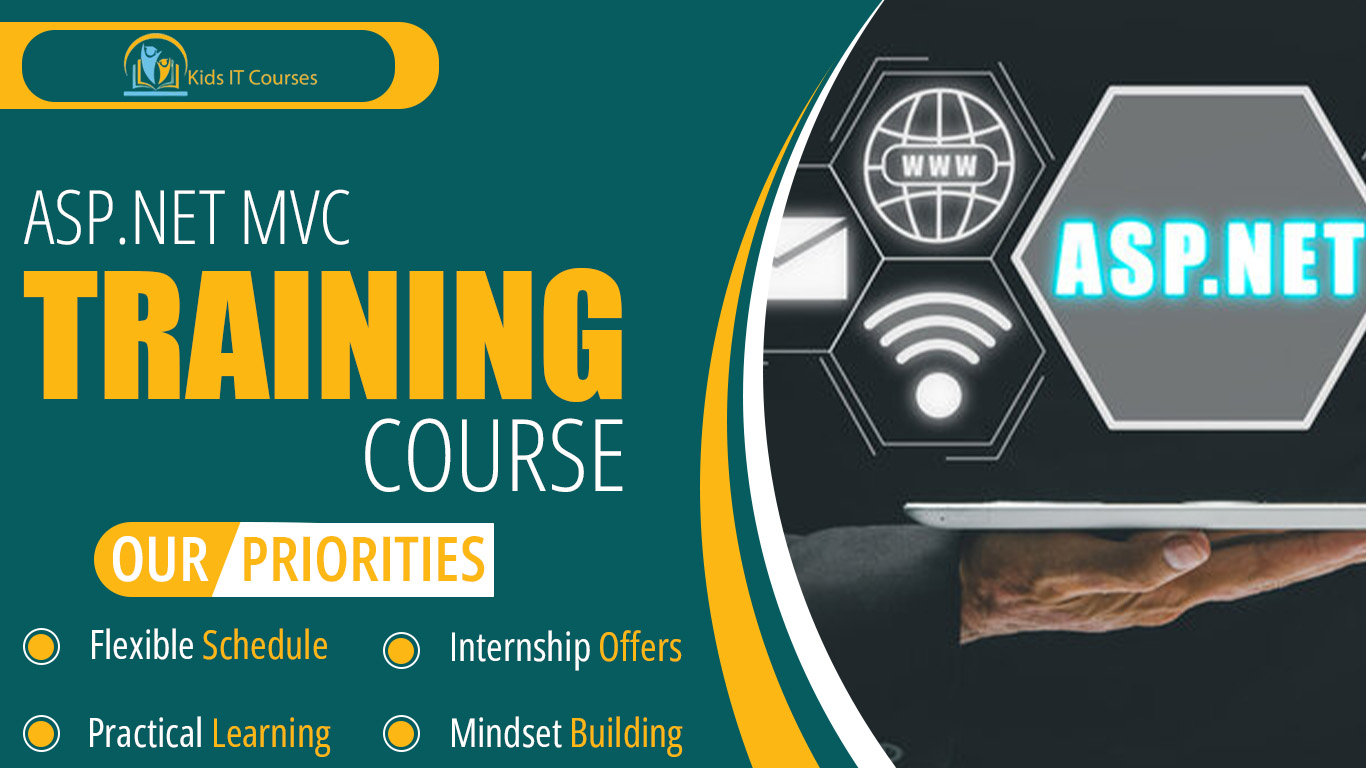
ASP.NET MVC Course for Kids
Definition
• ASP.NET MVC builds websites. Kids learn to make web apps.
• It uses coding languages. Like C# and HTML.
• Kids create pages and forms. For people to use online.
•They learn to organize code. Make apps faster and better.
•Kids fix bugs and errors. Improve their websites well.
• It teaches design and coding. Work together in projects.
• Prepares kids for tech jobs. Web development is useful.
ASP.NET MVC Training | Kids Short Skills Nearby Rawalpindi
Importance
• ASP.NET MVC builds websites. Kids learn to create apps.
• It helps organize code. Make websites work better.
• Kids learn about web design. How pages look and work.
• It teaches problem solving. Fix bugs and improve apps.
• Kids practice teamwork skills. Work with others on projects.
• It builds future tech skills. Useful for many jobs.
• Helps kids think clearly. Plan and build projects well.
Advantages for Freelancing
• Helps kids build websites. Makes pages work well.
• Teaches coding with C#. Easy and fun to learn.
•Kids learn to organize code. Makes fixing bugs simple.
• Builds problem-solving skills. Find and fix errors fast.
• Encourages creativity in design. Make websites look cool.
•Prepares for future tech jobs. Web development is useful.
•Boosts confidence in coding. Kids feel proud of work.
Session 1 : What is ASP.NET MVC?
What does ASP.NET MVC stand for?
Real-life example: A restaurant with a kitchen (Model), waiters (Controller), and menu display (View)
Why developers use MVC architecture for organized coding
The difference between traditional web apps and MVC
Activity: Draw how information flows in an MVC app
Session 2 : Getting Started with ASP.NET MVC
Installing Visual Studio and setting up your first MVC project
Understanding the file structure of an MVC app
Creating your first Controller, View, and Model
Activity: Build a basic “Hello World” MVC web app
Session 3 : The Model – Handling Data
What is a Model and what does it do?
Real-life example: A library’s catalog system
How to define and use models in ASP.NET MVC
Introduction to Entity Framework for database interaction
Activity: Create a simple model and display data on a page
Session 4 : The View – What Users See
What is a View and how HTML & Razor work together
Real-life example: The restaurant menu customers see
Using layouts and partial views for consistency
Activity: Build a page using a shared layout and Razor syntax
Session 5 : The Controller – Connecting the Pieces
What is a Controller’s job in MVC?
Handling user input and passing data to Views
Real-life example: A traffic cop directing cars
Activity: Create a Controller that displays different views based on user input
Session 6 : Routing and Navigatione
How MVC handles URLs and page navigation
Real-life example: GPS directing you to different places
Customizing routes and using route parameters
Activity: Set up custom routes and link to pages
Session 7 : Forms, Validation & CRUD Operations
Creating and submitting forms in MVC
Real-life example: Filling and submitting an online order
Adding validation rules and saving to the database (CRUD)
Activity: Build a basic contact form with validation
Session 8 : Final Project – Your First MVC Web App
Plan and build a mini web application using all MVC parts
Include navigation, data, forms, and database interaction
Test and run your app locally
Activity: Present your project and explain the MVC parts
Bonus Materials
ASP.NET MVC project templates
Razor syntax cheat sheet
Sample CRUD app source code
Best practices guide for MVC apps
Certificate of Completion for ASP.NET MVC Basics
